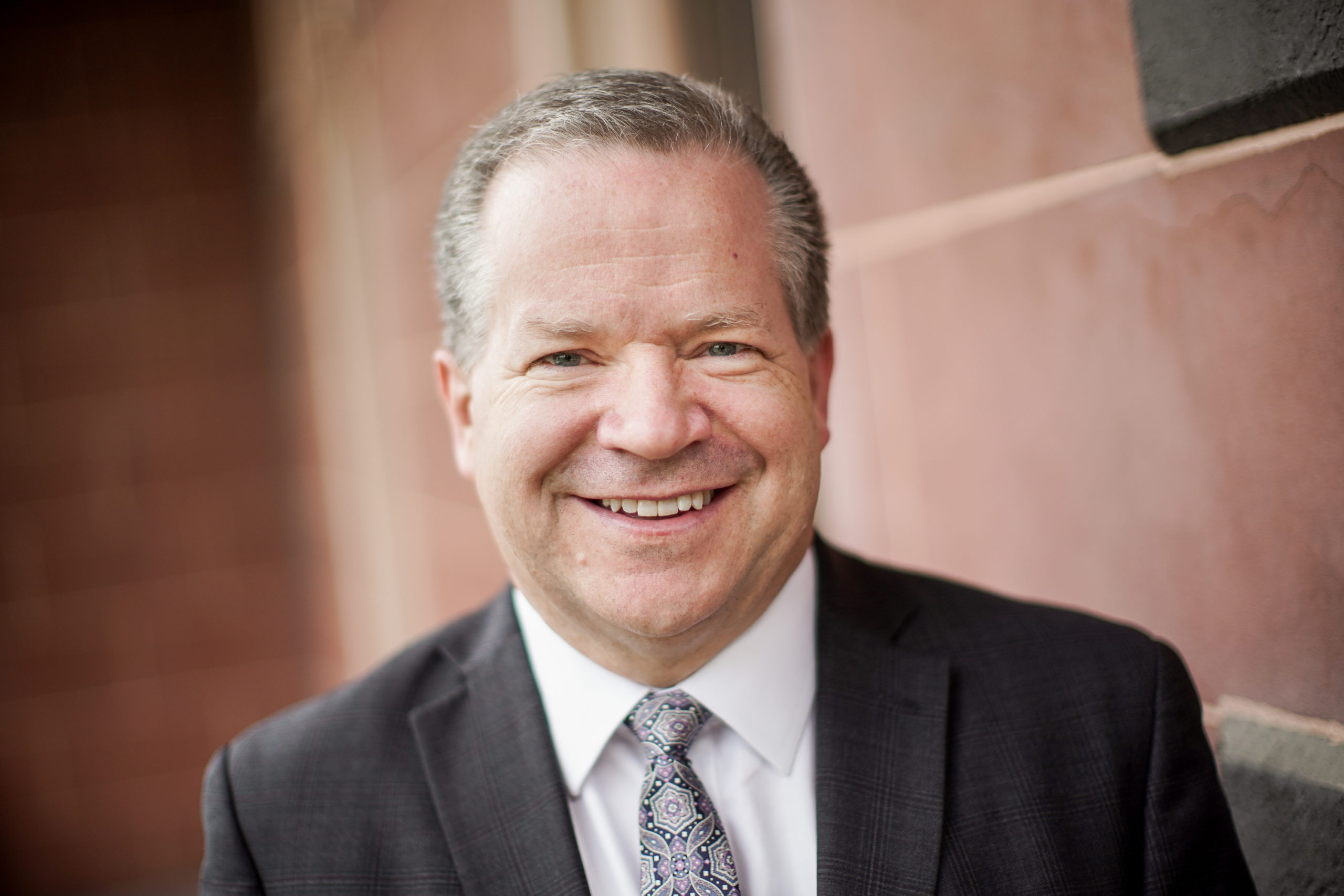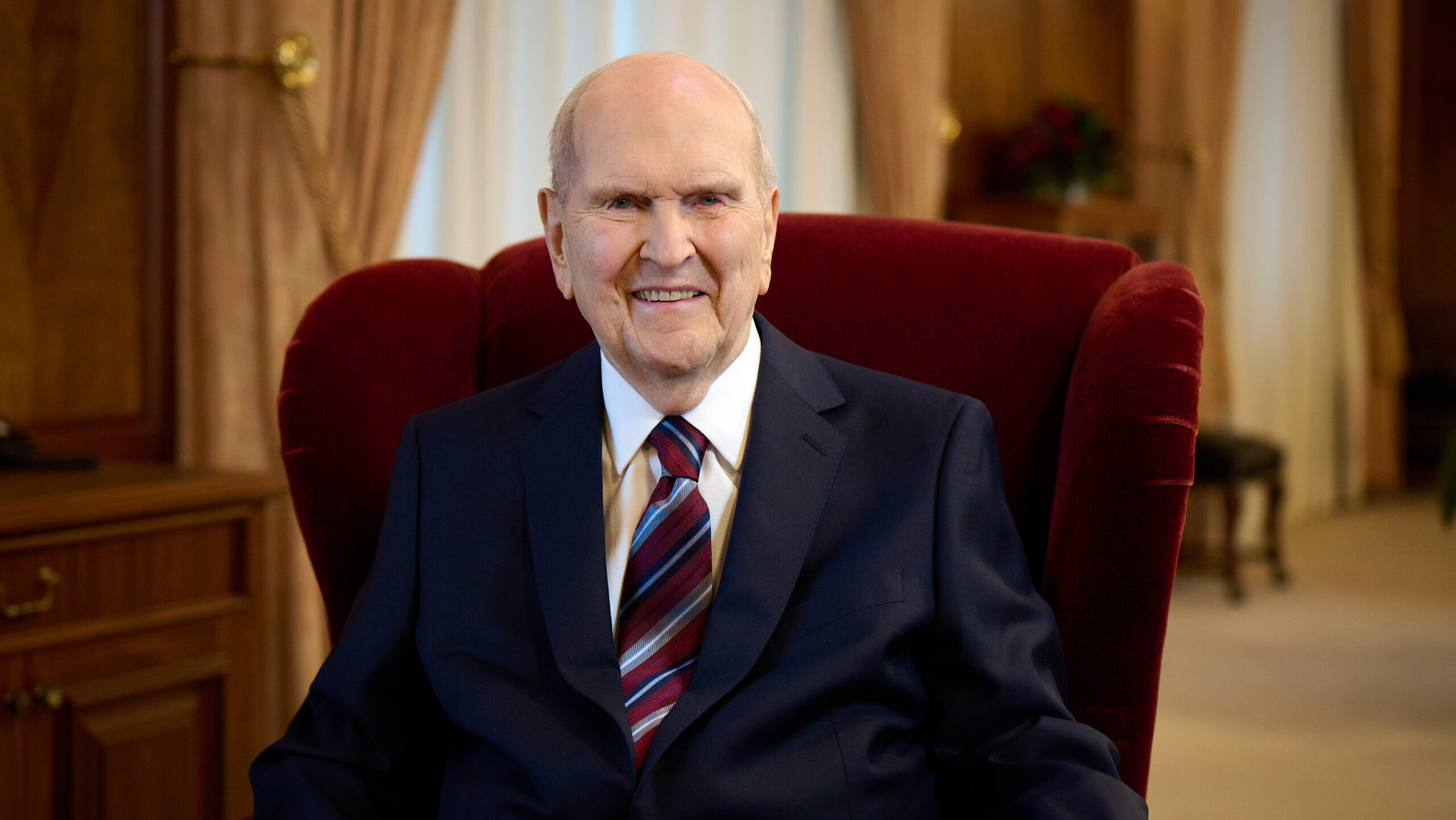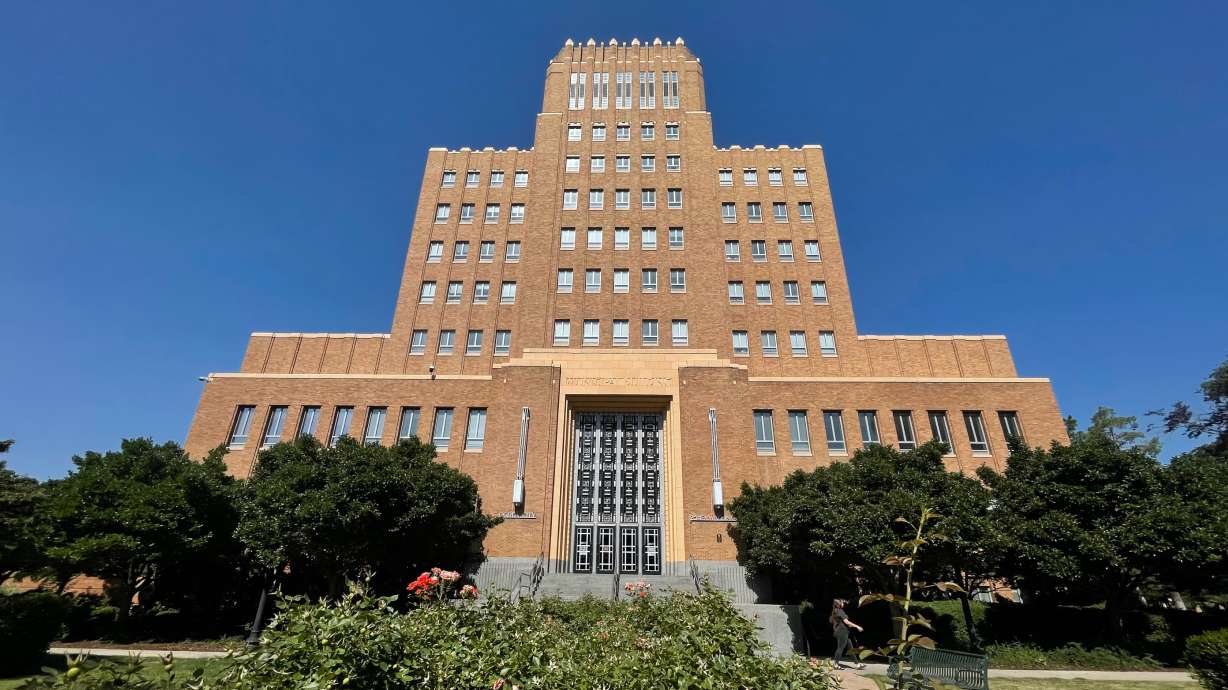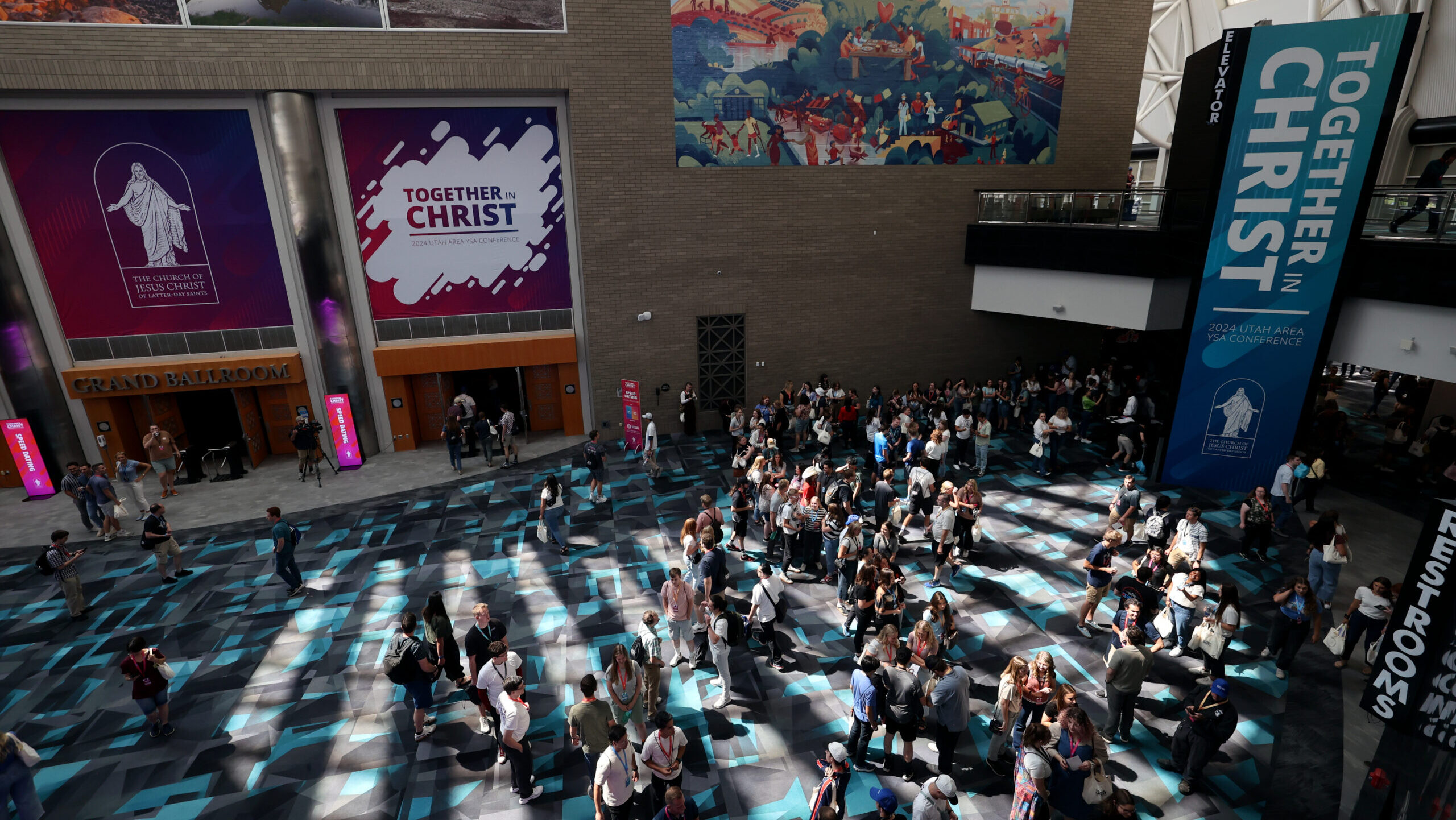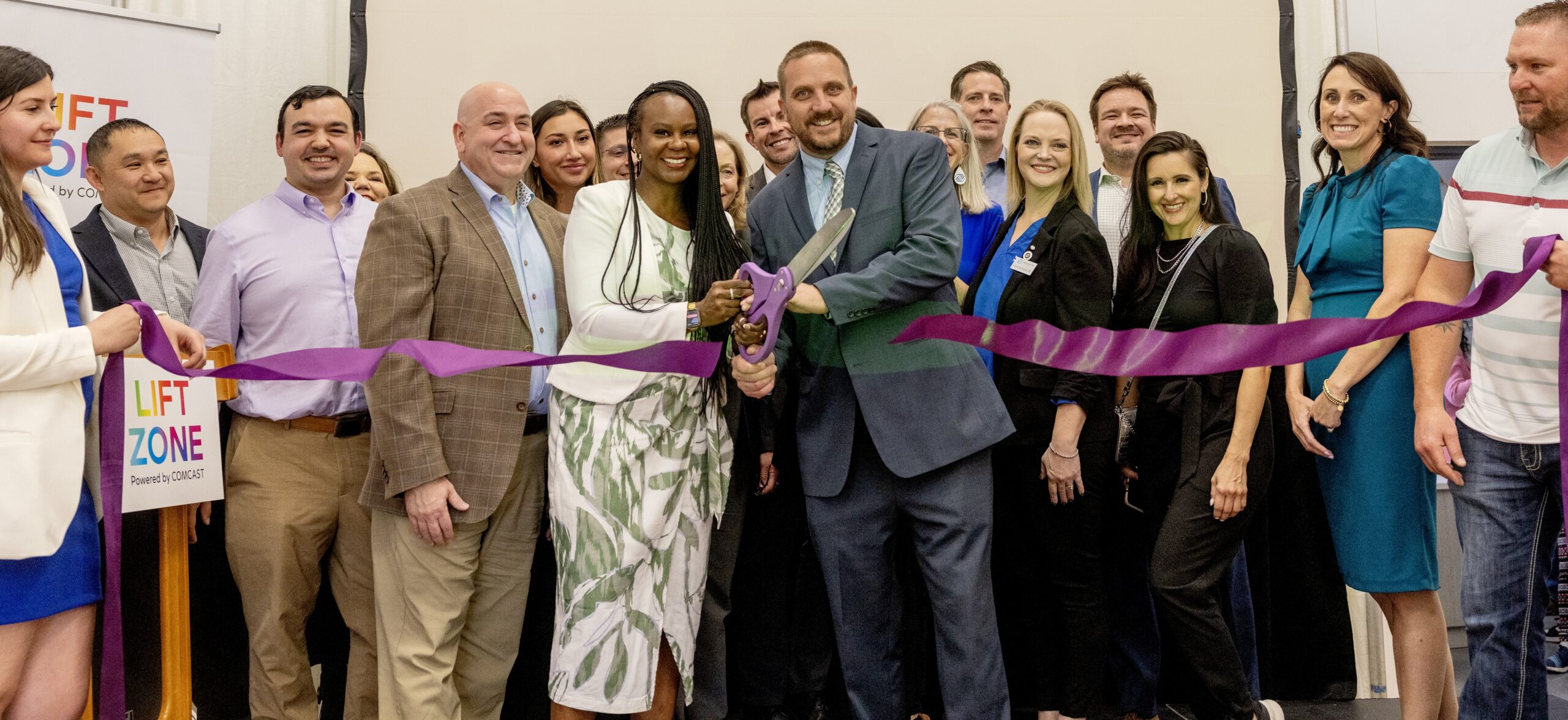RACE, RELIGION + SOCIAL JUSTICE
The Quest for Peace: The difference between peacemaking and peacekeeping
Oct 1, 2023, 11:50 AM | Updated: Jan 5, 2024, 2:40 pm
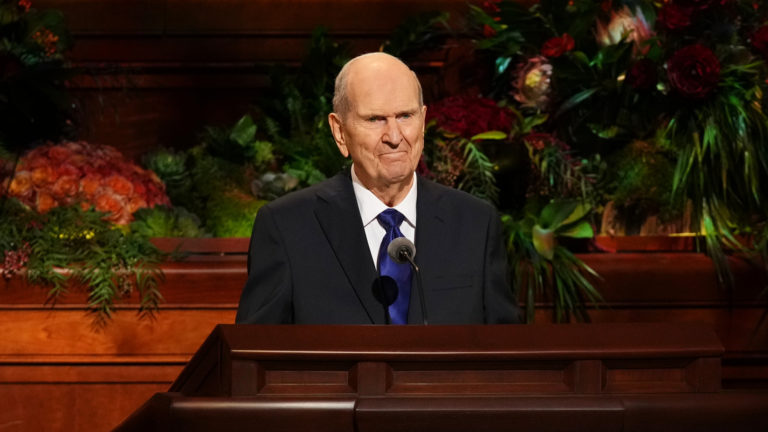
President Russell M. Nelson, president of the Church, delivers the closing address of the 191st Semiannual General Conference on Sunday afternoon, Oct. 3, in the Conference Center in Salt Lake City.
SALT LAKE CITY — In an age of rage and an era of division many have wondered if there is a path to peace in our homes and neighborhoods, communities and country.
With angry voices and derisive rhetoric dominating the debate, the demonization of opponents, and the weaponization of words – it seems that the pathway to peace has been blocked, broken, or completely erased.
One world religious leader, Russell M. Nelson, president of The Church of Jesus Christ of Latter-day Saints has called on members of the Church and the people of the world to become peacemakers.
Following the model of the Sermon on the Mount where Jesus said “Blessed are the peacemakers,” President Nelson issued a clarion call for people of faith and people of no faith to pursue peace. During his landmark April 2023 General Conference Address he declared that peacemaking by peacemakers is the way.
The Savior’s message is clear: His true disciples build, lift, encourage, persuade, and inspire — no matter how difficult the situation. True disciples of Jesus Christ are peacemakers.”
The path to becoming a peacemaker is often misunderstood. We too often focus on outward behaviors rather than the principles of peacemaking. Peacemaking is a quest that will test the best within us.
Peacekeeping and peacemaking — the difference
We begin with a look at the difference between peacekeeping and peacemaking.
Peacekeeping tends to be focused on outward behaviors. Following a military conflict, peacekeepers are generally deployed to “control behavior” and ensure that no new fighting begins.
History has shown that peacekeeping is difficult, and often temporary as it controls the surface behavior without solving the underlying issues that ignite anger, contempt, and distrust.
Comparing and contrasting peacekeeping and peacemaking we find:
- Peacekeepers are passive – while Peacemakers are bold.
- Peacekeepers avoid –while Peacemakers engage.
- Peacekeepers minimize conflict – while Peacemakers maximize crucial questions and conversations.
- Peacekeepers are content with surface control – Peacemakers dive deep to uncover source problems or misunderstandings.
- And, peacekeepers function from weakness – Peacemakers function from strength.
Breaking down barriers to find shared spaces
Eboo Patel is the head of Interfaith America in Illinois and is currently an impact scholar at the University of Utah. His efforts center on both interfaith work, and exploring how shared service can provide higher ground in order to move to common ground.
LISTEN: Eboo Patel on Talking to Strangers and Building Bridges in Higher Education
Rather than being bogged down by political or social identities civil society provides opportunities to break down barriers and lock into shared spaces, interests, and opportunities.
No one asks about politics when they are working side-by-side after a natural disaster or helping local underprivileged youth get new school clothes.
Peacekeeping alone can lead to simple tolerance or even indifference. Peacemaking requires reverence for every life. Indifference is reflected in the attention we give to others and the value we place on others’ opinions, life experiences, and perceptions.
Too often, it is easier to be indifferent and fill our lives with pleasant distractions than it is to lean into reverence and respect for others – especially with those we encounter who are different or have differing worldviews.
Ultimately being a peacemaker requires more of us. More listening, more sincere questions, and more understanding. Such a path leads toward building the bridge to peace.
Peacemakers are what the world needs. Becoming peacekeepers should be our quest individually as communities, and as a society overall.

